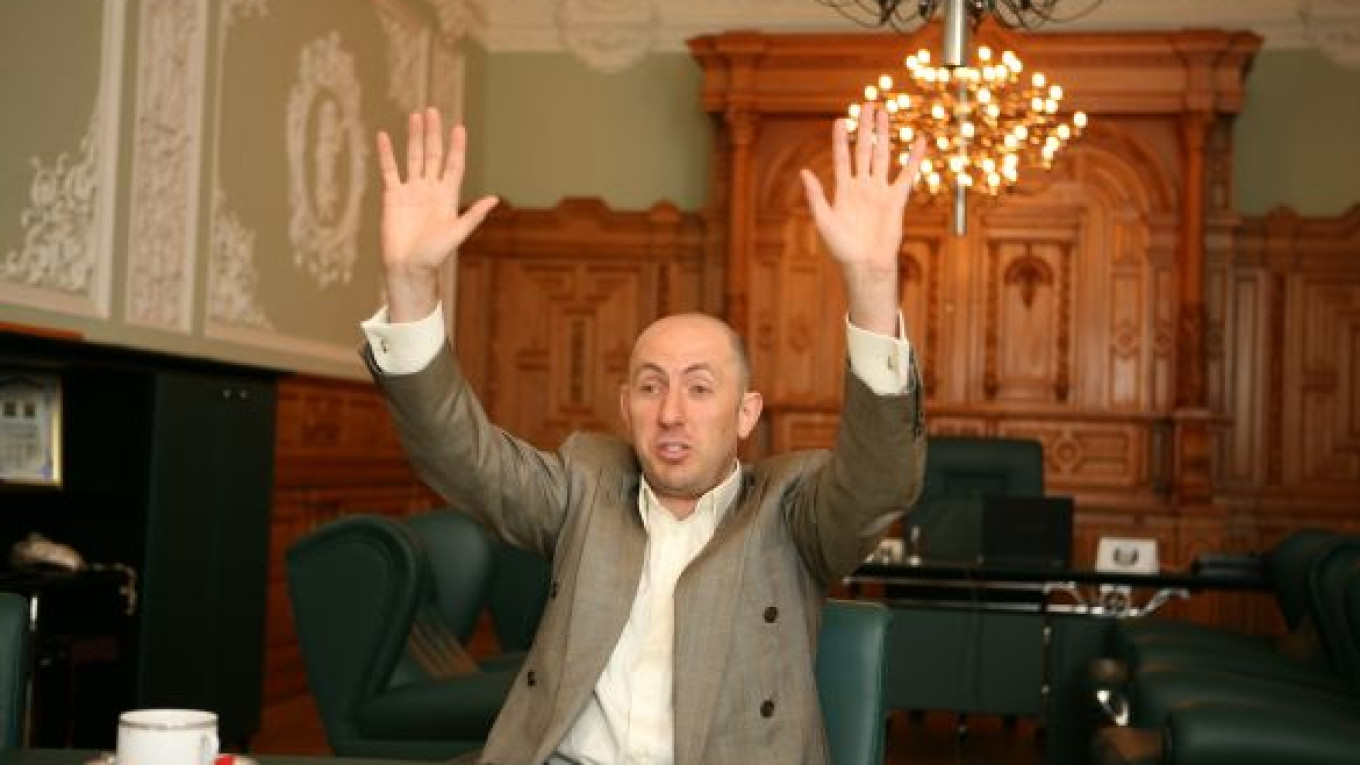London's High Court Of Justice has ruled that Vladimir Kekhman, who once described himself as the banana emperor of Russia, is bankrupt.
The case marks the first time a Russian businessman has sought individual bankruptcy in a foreign court, Kommersant reported Thursday.
Kekhman and his already-bankrupt banana imports company, JFC, which is the country's largest, are in the middle of legal battles with Russian banks that seek to recover 38.5 billion rubles ($1.3 billion) in loans.
Lawyers believe the individual bankruptcy will allow Kekhman to avoid seizure of his personal assets.
The notice of bankruptcy is posted on Britain's Individual Insolvency Register, which says the court handed down the bankruptcy order Oct. 5.
Kekhman declined to comment for the Kommersant article.
The biggest lenders after Kekhman are Sberbank, the country's largest financial institution; Bank of Moscow, a subsidiary of VTB, which is the country's second-largest bank; Promsvyazbank and UralSib, Kommersant said.
They declined to comment to the newspaper.
For the bankruptcy case, Kekhman, who is also a theater director, gave the location of a St. Petersburg theater as his last known address, according to the insolvency register.
The Mikhailovsky Theater sits at 1 Arts Square, where Kekhman said he occupies apartment No. 1.
Kekhman stunned the ballet world last year by enticing two Bolshoi Theater stars, Natalia Osipova and Ivan Vasiliev, to join Mikhailovsky.
In an interview with The New York Times last year, he said he had plowed $40 million of his personal money into restoring some of the Mikhailovsky's tsarist-era splendor.
He had abandoned his day-to-day responsibilities in running the fruit business to focus on the theater, he said in the interview, adding that he was "sort of the emperor of the banana."
In March, a Russian court declared JFC's parent company bankrupt. The company posted 45.5 million rubles ($1.6 million) in profit in the first half of last year.
Related articles:
A Message from The Moscow Times:
Dear readers,
We are facing unprecedented challenges. Russia's Prosecutor General's Office has designated The Moscow Times as an "undesirable" organization, criminalizing our work and putting our staff at risk of prosecution. This follows our earlier unjust labeling as a "foreign agent."
These actions are direct attempts to silence independent journalism in Russia. The authorities claim our work "discredits the decisions of the Russian leadership." We see things differently: we strive to provide accurate, unbiased reporting on Russia.
We, the journalists of The Moscow Times, refuse to be silenced. But to continue our work, we need your help.
Your support, no matter how small, makes a world of difference. If you can, please support us monthly starting from just $2. It's quick to set up, and every contribution makes a significant impact.
By supporting The Moscow Times, you're defending open, independent journalism in the face of repression. Thank you for standing with us.
Remind me later.


